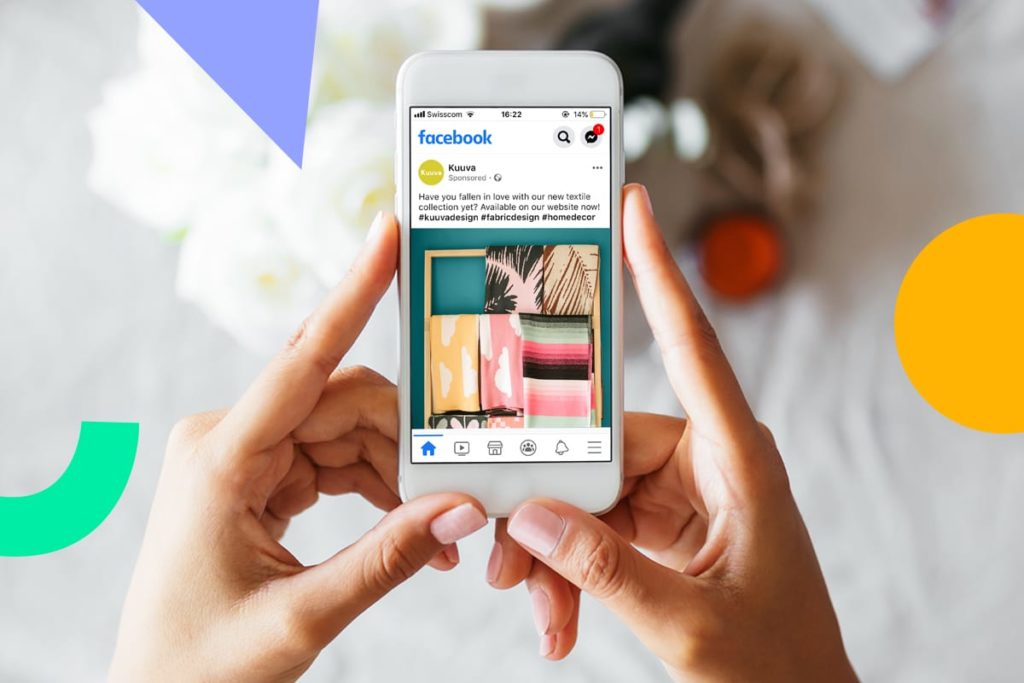Intro
Google and Facebook. These two giants offer endless opportunities for advertising your business. At first glance, they both seem quite alike, making it hard to decide which is better: Google Ads or Facebook Ads Manager?
Don’t let those similarities fool you. Both solutions have their strong points. Their certain characteristics can help you achieve different goals.
Read on – we’re about to tell you all about it.
Your Goal and Budget For Google Ads and Facebook Ads
Budgeting is an indispensable part of every marketing strategy. The question is, how does budgeting differ for Google Ads and Facebook Ad Manager? And how do you align it with your goals?
Google Ads Budgeting & Goal Setting
According to Wordstream, “giant retailers can spend up to $50 million per year on paid search in Google Ads. The average small- to mid-size business spends anywhere from $1,000 to $10,000 per month on their Google paid search campaigns. That’s $12,000 to $120,000 per year.”
You can fall anywhere on this spectrum. As a small or new business, you may have less money to spend on ads – and that’s fine. In general, however, an increased budget means better results.
A big mistake is to allocate your budget – however big or small it is – to wrong goals. Be sure to focus on those KPIs (Key Performance Indicators) that really move the needle for your business. The best way is to use the method of reverse engineering. Analyse your highest profits, track down where they come from and break them down into KPIs that you can then go after in your campaigns.
Facebook Ads Budgeting & Goal Setting
Budgeting in Facebook Ad Manager is a little different from Google Ads. While the general principle remains the same (bigger budget = bigger reach), experts on ImpactPlus agree that if your costs exceed $3 per click, something is wrong. This comes in opposition to Google Ads, where the CPC pricing varies greatly not just from one industry to another, but also from keyword to keyword.
When it comes to goal setting with Facebook Ads, your approach shouldn’t be all that different from Google Ads. See where the profit comes from and then focus on boosting related KPIs.
Curiously enough, Social Media Examiner suggests one more strategy that you might be interested in:
“About 20% of your Facebook ad spend should be dedicated to education, engagement, and audience-building. About 60% of your budget should focus directly on promoting your offer and generating those conversions. The remaining 20% you want to dedicate to your retargeting efforts.”
This will work particularly well for people who are new to ads, budgeting and KPIs in general. Treat it as a starting point to allocate your money – and work from there to see what gave the best results and where budgeting tweaks are necessary.

Source: Forbiz
How to Calculate the Daily Ad Budget?
Both Google Ads and Facebook Ads Manager will require that you define your daily budget. There’s a simple way to calculate that while simultaneously predicting the results.
In a standard year, an average month has 30.4 days. Take that number and divide your monthly budget. That’s how you receive your daily budget.
Daily ad budget = Monthly ad budget / 30.4
So, if your monthly ad budget is $1000, you’ll be able to spend $32.89 on ads.
Why does it matter?
It allows you to predict the results. If your designated KPI is a click, and one click in Google Ads or Facebook Ads Manager costs you $1.5, you can expect about 21 clicks every single day of an active ad campaign.
At the end of the day, it’s your estimate of how does it align with your goals.
Benefits of Google Ads
Google Ads have their own strengths and advantages. Depending on your business type, targetted audience and goals, they might be exactly the platform you need.
- It’s fast to get started. Google Ads are known for their relatively easy set-up. Creating a campaign is a straightforward process that doesn’t require significant preparation (meanwhile, social presence on Facebook does impact how your ads perform).
- Easy to launch and monitor. Google works on making its ads platform easy to navigate – and it is so. It’s simple not only to launch a campaign but also to monitor and optimize it.
- Has a higher selling chance. While Facebook is primarily a social platform (that means, focused on interactions), Google Ads favour search intent based on a buyer’s determination to find and purchase products. This translates to a higher probability of sales.
- Better ad placement. Google Ads are famous for their search results display, but that’s not where it ends. The platform partners with numerous large publications where your ads could be potentially displayed.
- It has a bigger reach. By processing nearly 9 billion searches a day, Google is still the most frequented place on the Internet – offering vastly larger access to customers than Facebook.
Benefits of Facebook Ads
However similar they are to Google’s ad platform, Facebook Ads have their own characteristics that may be better suited for certain business types.
- Better targeting. Because of their large database of demographics and interests, Facebook Ads offer better targeting options than Google Ads – which contributes to the effectiveness of your campaigns.
- They can help you reach more adequate targets. While Google Ads can give you overall bigger access to a population of buyers, Facebook, thanks to its algorithms, will direct your ads to a smaller, but better-targeted audience.
- Audience optimization. By using samples and existing personas, Facebook allows you to create lookalike audiences. This increases your selling chances. Optimizing these audiences is essential for higher conversion rates – and that’s something Google Ads falls behind with.
- It’s cheaper than Google Ads. On average, Facebook Ads are cheaper than Google Ads.
More ad types. In comparison to Facebook Ads, Google Ads are far more limited. On Facebook, you can experiment with different ad formats such as videos, slideshows or carousels.
Conclusion
Even with these specifics in mind, it still seems like a tough nut to crack when it comes to making your choice between these two popular ad platforms.
Would you go for a cheaper, laser-targeting Facebook? Or a wider audience with higher purchase intent that comes with Google Ads?
Before committing to either, consider going for both – the ideal solution is to be present on both platforms to test and optimize a variety of campaigns.
Only then can you see which works better for you and your business.
Good luck!
